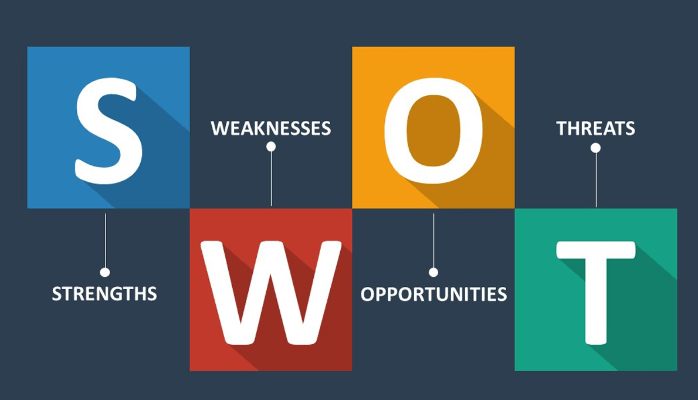Introduction
As an organization operating in Nigeria, retaining talented and skilled employees is crucial for long-term success and growth. High staff turnover not only disrupts workflow and increases recruitment costs but also hampers productivity and impacts overall organizational morale.
In this featured insight, we will explore effective strategies and best practices that organizations in Nigeria can implement to improve their staff retention rates and create a positive work environment.
1. Competitive Compensation and Benefits Packages
To attract and retain top talent, it is essential to offer competitive compensation and benefits packages. Conduct thorough market research to ensure your salaries align with industry standards. Consider additional benefits such as health insurance, flexible work arrangements, professional development opportunities, and performance-based bonuses. By providing attractive compensation and benefits, you demonstrate your commitment to employee well-being and show that you value their contributions.
2. Foster a Positive Work Culture
A positive work culture plays a significant role in employee satisfaction and retention. Create an inclusive and supportive environment where employees feel valued, respected, and appreciated. Encourage teamwork, collaboration, and open communication. Implement recognition programs to acknowledge employee achievements and milestones. Organize team-building activities and social events to foster strong relationships among colleagues. By prioritizing a positive work culture, you enhance employee engagement and loyalty.
3. Provide Opportunities for Growth and Development
Employees are more likely to stay with an organization that offers opportunities for professional growth and development. Establish clear career paths and provide training programs, mentorship initiatives, and skill-building workshops. Encourage employees to set personal and professional goals and support their aspirations. By investing in their growth, you demonstrate a commitment to their long-term success, which in turn boosts job satisfaction and retention.
4. Work-Life Balance and Flexible Policies
In today’s fast-paced world, achieving work-life balance is essential for employee well-being and job satisfaction. Implement flexible work arrangements such as remote work options, flexible hours, or compressed workweeks. Encourage employees to take breaks and vacations to recharge and avoid burnout. By promoting work-life balance, you create a healthier and happier workforce, leading to increased retention rates.
5. Employee Engagement and Feedback
Regularly engage with employees and seek their feedback to understand their needs, concerns, and suggestions. Conduct employee surveys, hold regular team meetings, and establish open-door policies. Actively listen to employee feedback and address their concerns promptly. Involve employees in decision-making processes and recognize their input. By fostering a culture of open communication and valuing employee opinions, you create a sense of ownership and commitment, which positively impacts retention rates.
6. Recognition and Rewards
Recognizing and rewarding employee efforts and achievements is a powerful motivator and helps build loyalty. Implement a comprehensive employee recognition program that acknowledges exceptional performance, innovation, and contributions to the organization. Recognize individuals and teams publicly, whether through company-wide announcements, newsletters, or internal platforms. Celebrate milestones and successes to create a positive and encouraging work environment.
7. Strong Leadership and Supportive Management
Effective leadership and supportive management are vital for employee satisfaction and retention. Ensure managers are well-trained in leadership skills, effective communication, and conflict resolution. Encourage managers to build strong relationships with their teams, provide regular feedback, and support employee growth. By fostering strong leadership and supportive management, you create a work environment where employees feel valued and motivated.
8. Employee Wellness Programs
Investing in employee wellness programs demonstrates a commitment to their overall well-being. Offer health and wellness initiatives such as gym memberships, mental health support, yoga or meditation sessions, or access to counseling services. Create a work environment that promotes physical and mental well-being. By prioritizing employee wellness, you enhance job satisfaction and create a supportive workplace culture.
9. Transparent Career Progression
Clearly define career paths and advancement opportunities within the organization. Communicate these opportunities to employees and provide them with the necessary resources to achieve their career goals. Establish transparent performance evaluation processes and provide constructive feedback to help employees improve and grow. By offering clear career progression paths, you instill a sense of purpose and direction, leading to higher employee retention rates.
10. Stay Competitive and Evolve
Finally, it is crucial to stay competitive and adapt to changing employee expectations and industry trends. Keep a pulse on the job market, industry developments, and emerging technologies. Regularly review and update your retention strategies to align with evolving needs. By staying proactive and responsive, you position your organization as an employer of choice and attract and retain top talent.
In conclusion, improving staff retention rates in Nigerian organizations requires a holistic approach that encompasses competitive compensation, a positive work culture, growth opportunities, work-life balance, employee engagement, recognition, strong leadership, wellness programs, transparent career progression, and staying competitive. By implementing these strategies, organizations can create an environment where employees feel valued, motivated, and committed, leading to higher staff retention rates and long-term success.
Additional resource: Staff Retention (Forbes).
Need Help?
At Carthena Advisory, we provide well-crafted strategy development services that will give your organization a competitive advantage, increase productivity, and drive growth and profitability. Visit capabilities to see how we can help.





